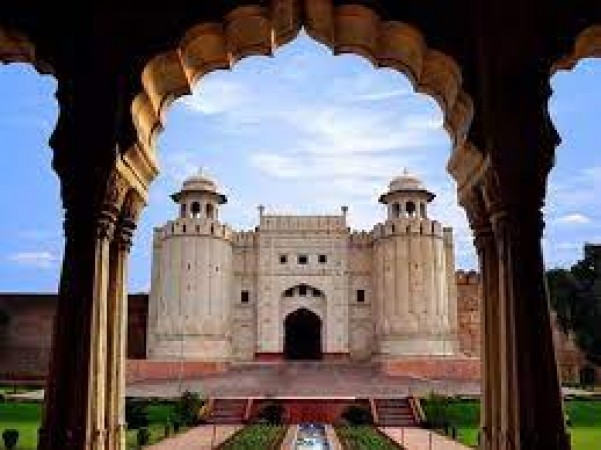
The Mughal Empire, renowned for its grandeur and architectural marvels, once had its capital located in present-day Pakistan. Let's delve into the history and discover where this majestic capital was situated.
1. The Magnificent Mughal Empire
The Mughal Empire, one of the most powerful empires in the history of the Indian subcontinent, stretched from present-day Afghanistan in the west to Bangladesh in the east and covered a vast expanse of the Indian subcontinent. Founded by Babur in 1526, the empire reached its zenith under Emperor Akbar the Great in the late 16th century, with a flourishing economy, vibrant culture, and strong military.
2. Lahore: The Jewel of the Mughal Empire
Among the many cities that flourished under Mughal rule, Lahore emerged as one of the most significant. Situated in present-day Pakistan, Lahore became the capital of the Mughal Empire during the reign of Emperor Akbar in the late 16th century. The city's strategic location, rich cultural heritage, and thriving trade made it an ideal choice for the Mughal capital.
3. A Rich Legacy
Lahore boasts a rich and diverse history that dates back over a millennium. From its origins as a small settlement in ancient times to its prominence as a center of culture, commerce, and governance under the Mughals, Lahore has witnessed the rise and fall of empires, leaving behind a legacy that continues to shape its identity today.
4. The Rise of Lahore
Lahore's ascent to prominence began during the reign of Emperor Akbar, who recognized the city's potential as a center of administration and culture. He ordered the construction of several architectural marvels, including the iconic Lahore Fort and the Badshahi Mosque, which remain enduring symbols of the Mughal era.
5. Cultural Flourishing
Under Mughal rule, Lahore experienced a cultural renaissance, with poets, artists, and scholars flocking to the city to patronize the arts. The Mughal emperors were known for their love of music, poetry, and literature, and Lahore became a hub of creativity and intellectual exchange during this period.
6. Architectural Marvels
The Mughals left an indelible mark on Lahore's landscape, with stunning examples of Mughal architecture scattered throughout the city. The Lahore Fort, with its intricate tile work and majestic gates, stands as a testament to the empire's grandeur, while the Badshahi Mosque, one of the largest mosques in the world, is a masterpiece of Mughal design.
7. The Red Fort of Lahore
One of Lahore's most iconic landmarks is the Shahi Qila, or Lahore Fort, a UNESCO World Heritage Site that dates back to the 16th century. Constructed by Emperor Akbar and later expanded by his successors, the fort is a sprawling complex of palaces, gardens, and pavilions that once served as the seat of Mughal power in the region.
8. Lahore: A Center of Power
During its heyday, Lahore was not only the political capital of the Mughal Empire but also a center of commerce and trade. The city's bustling markets attracted merchants from far and wide, making it a vibrant hub of economic activity.
9. Decline and Departure
Despite its glorious past, the Mughal Empire began to decline in the 18th century, weakened by internal strife, external invasions, and economic instability. Lahore's significance waned as the empire crumbled, and by the mid-19th century, it had fallen under British rule.
10. Modern Lahore: A Reflection of Its Mughal Legacy
Today, Lahore remains a vibrant and dynamic city, with a population that exceeds 11 million people. While much has changed since the days of the Mughals, traces of their legacy can still be found in Lahore's architecture, cuisine, and culture, reminding visitors of the city's storied past.
In conclusion, Lahore served as the capital of the Mughal Empire in present-day Pakistan, leaving behind a legacy of grandeur, architectural marvels, and cultural richness. While the empire may have faded into history, Lahore continues to thrive as a testament to its enduring influence.
Toxic Dye Alert: Tamil Nadu Health Deptt Bans Cotton Candy Sales
From Immunity Boost to Weight Loss: This Water Benefits Many Aspects
Make These Diet Changes Today to Protect Yourself from Fatty Liver